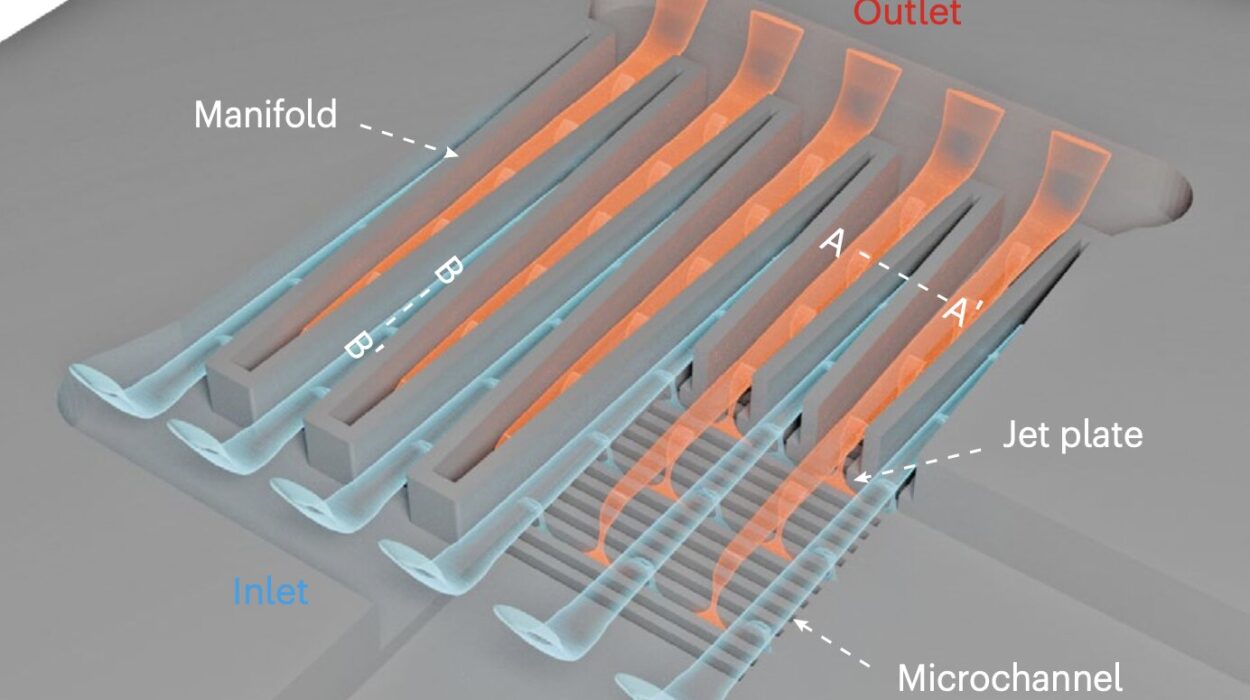In a quiet lab, humming with cold silence and cables that seem to breathe, a machine unlike any other waits. It doesn’t look like the future—its metallic bulk is suspended inside a chandelier of wires and coils, nestled in a cryogenic chamber near absolute zero. It doesn’t blink or beep. It doesn’t buzz with fanfare or flash screens of colorful light. But within its heart, something extraordinary is happening.
This is not a supercomputer. It is a quantum computer—a machine that doesn’t just calculate but dances with the fundamental laws of the universe. And while it may still be in its infancy, struggling to stand, quantum computing is poised to leap forward with the force of a scientific renaissance. The changes it promises are not gradual. They are explosive. Transformative. Irreversible.
To most of the world, quantum computing still sounds like science fiction, or worse, a buzzword hurled around by tech evangelists. But that’s about to change. The age of quantum computing isn’t arriving with a whisper—it’s coming with a storm. And when it hits, the world will never be the same.
The Quantum Leap: Why This Matters
Every age has its technology of wonder. The steam engine powered the Industrial Revolution. The transistor birthed the digital era. The internet rewired the globe. But quantum computing isn’t just the next step in that sequence—it’s an entirely different staircase. It doesn’t replace our current computers; it rewrites the rules they operate by.
In classical computing, information is stored in bits: tiny switches that are either on or off, one or zero. Every program, every app, every website you’ve ever used is built from this binary language.
But quantum computing uses quantum bits—qubits. Unlike regular bits, qubits can be both one and zero at the same time. It’s a bizarre phenomenon known as superposition, a concept so alien it feels like sorcery. When paired with another quantum magic trick called entanglement—where qubits can become intertwined in such a way that changing one instantly affects the other, even across vast distances—quantum computers can perform calculations that would take today’s fastest supercomputers billions of years.
It’s as if we’ve spent centuries walking through mazes, trying every path one by one—and now suddenly, quantum computing allows us to explore all paths simultaneously.
The Iceberg Beneath the Surface
For now, quantum computers are fragile. Most require cryogenic temperatures colder than outer space. Their qubits are volatile, collapsing back into classical bits when disturbed. They are difficult to program, prone to errors, and astonishingly expensive to build.
But this is how revolutions begin—not with perfection, but with potential.
The first transistors, built in the 1940s, were crude, clunky devices. Few imagined they would shrink down to fit inside our pockets or power the software empires of Google and Apple. Similarly, quantum computers may seem unwieldy now—but their trajectory is exponential.
Already, companies like IBM, Google, and startups like Rigetti and IonQ are racing to build scalable quantum machines. Governments are investing billions. China, the U.S., and the European Union have declared quantum computing a matter of national importance. The arms race is not just for better missiles or AI dominance—it’s for quantum supremacy.
And this time, the winner might control the fabric of the future.
The Breakers of Unbreakable Codes
Imagine a world where every lock you’ve ever known—bank encryptions, secure messages, government secrets—can be picked effortlessly. That’s what quantum computing threatens to do to modern cryptography.
Most current encryption relies on the difficulty of certain mathematical problems—like factoring a massive number into its prime components. Classical computers would take centuries to crack these keys. But a sufficiently powerful quantum computer could do it in minutes, thanks to an algorithm developed by mathematician Peter Shor.
This realization sent shockwaves through the cybersecurity community. Institutions that rely on data privacy—banks, militaries, hospitals—are now racing to develop quantum-resistant encryption methods. It’s a new cat-and-mouse game, one that has geopolitical implications as serious as nuclear arms.
But this power also offers a gift: the ability to create truly unbreakable encryption using the very principles of quantum mechanics. Through a process called quantum key distribution, two parties can share a secret key so securely that any attempt to intercept it would instantly alert both sides. It’s a paradoxical promise: the same quantum technology that can destroy our digital security may also be the only thing that can save it.
Quantum Medicine: Healing with Precision Beyond Belief
In medicine, quantum computing is poised to become a miracle worker. The process of drug discovery is long, expensive, and riddled with failure. A single drug can take over a decade to develop and cost more than a billion dollars.
Why? Because simulating the behavior of molecules—how they bind, twist, and interact in the human body—is excruciatingly complex. Traditional computers struggle to model these systems. The math explodes. The variables multiply beyond comprehension.
Quantum computers, however, can model these systems natively. Molecules are quantum systems. Quantum computers speak their language.
This means we could design drugs tailored to specific proteins, cancers, or viruses with astonishing speed. A cure for Alzheimer’s? A universal flu vaccine? Treatments for rare genetic disorders that today languish in the realm of impossibility? Quantum medicine might not just save time and money—it could save lives.
The COVID-19 pandemic reminded the world of how vulnerable we are. With quantum computing, we could leap ahead of pandemics before they happen—mapping viral mutations, optimizing vaccine molecules, and modeling immune responses faster than a virus can spread.
The AI Accelerator We Didn’t Expect
Artificial Intelligence already feels like a runaway train. With recent advances in deep learning, machine learning, and neural networks, AI is beginning to mimic, and in some cases outperform, human capabilities. But even the most powerful AI models today are bottlenecked by one thing: the speed and limits of classical computation.
Quantum computing could blow that bottleneck apart.
Quantum computers can process vast amounts of data in parallel. They could enable new kinds of neural networks, exponentially faster training of models, and previously impossible forms of unsupervised learning. This could give rise to AIs that can reason, simulate emotion, or discover patterns invisible to classical algorithms.
Imagine an AI that can diagnose a disease, invent a treatment, and simulate the patient’s response—all in seconds. Or an AI that can understand human language with such depth it feels like a conversation with a real person, not a machine.
We’re not just talking about faster AI—we’re talking about a different kind of intelligence altogether. A fusion of human insight, artificial cognition, and quantum intuition.
The Earth’s Guardian: Quantum for Climate and Energy
Climate change is the defining crisis of our era. It’s also a problem so complex that traditional computing often falters under its weight. Climate models involve thousands of variables—ocean currents, atmospheric layers, carbon cycles—all dancing in a chaotic, ever-shifting equilibrium.
Quantum computing could help simulate the Earth’s climate with unprecedented accuracy, helping us predict tipping points, model extreme weather events, and guide mitigation strategies with surgical precision.
But even more powerfully, quantum machines could help us invent better solutions—new materials for carbon capture, ultra-efficient solar panels, or catalysts for clean hydrogen fuel production. By designing molecules atom by atom, quantum computers could help us transition to a sustainable energy future not in 100 years, but in 10.
The Economics of Infinity
Every industry touched by data—which is to say, every industry—stands to be transformed by quantum computing. Financial markets, logistics, pharmaceuticals, manufacturing, materials science, agriculture, transportation—the applications are as vast as they are unpredictable.
In finance, quantum algorithms could optimize portfolios with uncanny precision, detect market anomalies in real time, and even model economic behavior with far greater realism than current econometrics allows.
In logistics, quantum computers could crack the “traveling salesman problem” at planetary scales—optimizing global supply chains, minimizing emissions, and slashing costs.
And in materials science, we may unlock superconductors that work at room temperature—eliminating energy loss, transforming power grids, and birthing levitating trains. These are not science fiction scenarios. They are already being explored in quantum labs around the world.
The ripple effects on the global economy would be seismic. Entire industries may rise or fall based on who gains quantum advantage first.
The Race for the Quantum Future
Make no mistake: the race is on.
Governments see quantum as a national security issue. Tech companies see it as the next trillion-dollar frontier. Venture capital is flooding in. Universities are retraining physics graduates into quantum engineers. The quiet hum in those cryogenic labs is growing louder.
Google’s 2019 announcement of “quantum supremacy”—where their Sycamore processor solved a problem in minutes that would take the world’s most powerful supercomputer thousands of years—was a shot across the bow.
IBM countered. China responded. Now, every quantum leap is geopolitical.
But unlike previous arms races, the stakes aren’t just military. They are existential. Whoever leads in quantum computing will lead in AI, biotechnology, finance, defense, and energy. This is not a gold rush. It’s a moonshot—and the moon is made of qubits.
When the Impossible Becomes Normal
We often underestimate how fast exponential change feels when it arrives.
Once, we scoffed at the idea of a phone in every pocket. Then came the iPhone. We laughed at self-driving cars—until they drove themselves. And now, quantum computing stands at that same precipice.
The shift may not be visible at first. Quantum breakthroughs won’t come with fireworks. They’ll arrive quietly—in better drugs, smarter AIs, faster logistics, more accurate weather forecasts. But as those changes compound, the world we know will bend. The impossible will become normal. The fantastic, mundane.
Children born today may grow up in a world where passwords are obsolete, cancer is predictable, and AI is a collaborator, not a tool. They may never remember a world without quantum-enhanced medicine, energy, and communication.
The Ethical Frontier
With such power comes risk. Quantum computing, like any powerful technology, is neutral. It can heal or harm. It can liberate or oppress. It can build utopias or entrench inequalities.
If only a handful of corporations or governments control quantum resources, we risk deepening the chasm between the technological elite and the rest of the world. If quantum algorithms are used for surveillance, discrimination, or manipulation, they could become tools of dystopia.
The choices we make now—about who has access, how it’s regulated, how it’s used—will shape the moral architecture of the quantum age.
This is our moment of responsibility. The tools are still being forged. The paths are still open. But they are closing fast.
The Human Spirit in a Quantum World
At its core, quantum computing is not just about machines. It’s about possibility.
It’s a testament to the human spirit—that we dared to look at the particles that make up existence and say, “We can understand this.” That we took the weirdness of quantum physics and chose not to fear it, but to harness it. That we asked, not only what is, but what could be.
In a universe governed by uncertainty, we are writing a new certainty: that knowledge, creativity, and imagination can change the very nature of reality.
Quantum computing is not just a technological revolution. It is a human one.
And it’s coming faster than you think.






